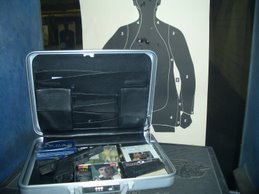The cosmos of Beethoven is broad and deep, and much ink has been spilled explaining its contours. One of its shining constellations is the almighty 9th symphony, written at the eve of his death, also known as the “Choral Symphony.” It received this nickname, probably by publicists trying to sell more scores, because Beethoven did the unthinkable: he turned the last movement into a duet of orchestra and chorus (gasp!), smashing all sense of proper 18th century symphonic decorum and good manners. It remains arguably the greatest symphony ever committed to paper, and what is even more incredible is that the man who wrote it was completely deaf at the time.
The climax of the piece is the last movement, where the chorus comes storming in at full throttle with Schiller’s poem “Ode to Joy.” It is the sound of victory, elation, and terror fused into a single, raw life-force. It’s the piece European armies marched to after sacking capitals, and the piece that unified East and West Germany on Christmas Day 1989, just weeks after the Berlin Wall fell.

There is no single, best recording of this supreme opus. There are a multitude of music lovers willing to knock out teeth and crack bones to defend their favorite conductor's vision. Visions include: Furtwangler, Klemperer, Walter, Boehm, Toscanini, Karajan, Bernstein, Solti, Abbado, Mackerras, Harnoncourt, and many, many more.
Listen to legendary conductor Herbert von Karajan’s explosion of "Ode to Joy," in his equally legendary 1976 recording. This is the second of three recordings he made and I think his finest. Indeed, it is one of THE finest. Compare it, for example, to Solti's version, in the previous blog, which sounds utterly sluggish and leaden next to this:

Yes, it is potent. Yes, it invigorates my work ethic as a mercenary. But what it is to power, it’s little brother, the third movement, is to prayer. In many ways, the third movement is the feast of my fancy. It is the antithesis of the Odeon last movement, and instead proceeds like a meditation, written by a man cruelly deprived of his hearing due to a mid-life illness. Poor Beethoven expressed his rage against fate in violent works like the 5th symphony (da-da-da-DUM!). However here we have a different man. An older man, knowingly approaching his personal eschatology, and has come to some small acceptance of life’s cruel capriciousness.
Unlike the famous 5th symphony or violently triumphant “Ode to Joy,” this music is soft, penitent, and sublime. It unfolds in a rich soundscape, slowly like the revelation of a mystery not intended for public consumption. Its melody, as carried by the violins and then the winds, is optimistic and lyrical: not full of the anger in earlier works. It sounds simple, but packs in a universe of emotional angst, digested over a tormented lifetime.
Perhaps this is Beethoven’s resignation to the gods of song and sound. The magic of the movement is that we mere mortals are witnessing a holy communion between the musical gods and their greatest mortal champion, LvB, in a language that he could no longer hear but so clearly understood.
Listen to the incomparable Wilhelm Furtwängler (who is Beethoven’s peer in the realm of conducting and demands his own blog expo) join in this communion, in his last-ever recording, months before his own death in 1954:






3 comments:
Suspended between manifesto and celebration, caught between lips and the cup, Beethoven's 9th is one of the few pieces of music I recognize as sublime. And I am pretty tone-deaf, not as bad as Beethoven in the end, but pretty tone-deaf nonetheless. Every year on New Year's Day the Berlin Philharmonic hosts a performance which my family attends.
Next time you find your opera-loving mercenary self in Berlin on New Year's Day you must join us.
PS: My vote goes to Karajan's version.
Il Condottiero - just stumbled across your blog courtesy of NPR and in checking it out found many interesting posts, particularly this one; hence the "late" comment.
S#9 is roughly contemporaneous with both Missa Solemnis which as an opera lover you may enjoy. I find it transcendent but deep. And it's also contemporary with the late quartets, which may not be to your taste but, after sorting thru them a bit strike me much the way Bach's Solo works do. As someone once put it "he's talking to God with math"; well LvB is communing with him with great emotional structures.
FWIW - I could see wanting to desperately listen to Bach or something after covering the ground in your Rwanda post.
Nice fill someone in on and this fill someone in on helped me alot in my college assignement. Thank you on your information.
Post a Comment